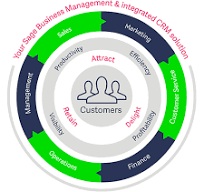The Role of Software Developers in Today’s Digital World
Software developers play a crucial role in shaping the technology-driven world we live in today. These skilled professionals are the masterminds behind the creation of software applications, systems, and platforms that power our daily lives and drive business innovation.
What Do Software Developers Do?
Software developers are responsible for designing, coding, testing, and maintaining software programs. They work closely with stakeholders to understand requirements, develop technical solutions, and ensure that the final product meets user needs. Whether they are creating mobile apps, web applications, or enterprise software solutions, software developers are at the forefront of technological advancement.
The Skills Required
Successful software developers possess a combination of technical expertise and problem-solving abilities. They are proficient in programming languages such as Java, Python, C++, and JavaScript. Additionally, they have a deep understanding of algorithms, data structures, and software development methodologies.
Effective communication skills are also essential for software developers as they often collaborate with cross-functional teams and communicate complex technical concepts to non-technical stakeholders. Adaptability and a willingness to learn new technologies are key traits that enable software developers to stay ahead in an ever-evolving industry.
The Impact of Software Developers
Software developers have a profound impact on society by creating innovative solutions that improve efficiency, enhance communication, and facilitate automation. From healthcare systems that save lives to e-commerce platforms that streamline shopping experiences, the work of software developers touches every aspect of modern life.
Businesses rely on software developers to build custom applications that meet their specific needs and give them a competitive edge in the market. Startups leverage the expertise of software developers to bring their ideas to life and disrupt traditional industries with digital solutions.
In Conclusion
Software developers are the architects of our digital future. Their creativity, technical prowess, and dedication drive progress in industries ranging from healthcare to finance to entertainment. As technology continues to evolve at a rapid pace, the role of software developers will only become more critical in shaping our world for years to come.
Top 5 Benefits of Being a Software Developer: Demand, Flexibility, Creativity, Salary, and Diversity
- High demand for skilled professionals in the tech industry
- Opportunities for remote work and flexible schedules
- Creative outlet for problem-solving and innovation
- Competitive salaries and potential for career growth
- Ability to work on diverse projects across different industries
Challenges Faced by Software Developers: Workload, Continuous Learning, Health Impacts, and Mental Strain
- Highly demanding workload and tight deadlines can lead to burnout and stress.
- Constant need to stay updated with evolving technologies may require continuous learning and upskilling.
- Sedentary work environment and long hours of sitting can impact physical health.
- Dealing with complex coding challenges and debugging issues can be mentally taxing.
High demand for skilled professionals in the tech industry
The high demand for skilled software developers in the tech industry underscores the critical role they play in driving innovation and digital transformation. As businesses across various sectors increasingly rely on technology to stay competitive and meet evolving customer demands, the need for talented professionals who can develop cutting-edge software solutions continues to grow. Software developers possess valuable skills that are in constant demand, making them sought-after assets for companies looking to stay ahead in a rapidly changing technological landscape.
Opportunities for remote work and flexible schedules
Software developers enjoy the pro of opportunities for remote work and flexible schedules, allowing them to achieve a better work-life balance. With the ability to work from anywhere with an internet connection, software developers can choose their ideal work environment and tailor their schedules to accommodate personal commitments. This flexibility not only enhances productivity and job satisfaction but also attracts top talent to the industry, fostering a diverse and inclusive workforce.
Creative outlet for problem-solving and innovation
Software developers have a unique pro in that their work serves as a creative outlet for problem-solving and innovation. By tackling complex challenges and finding innovative solutions through coding and programming, software developers are able to unleash their creativity while addressing real-world problems. This aspect of their role not only keeps them engaged and motivated but also allows them to continuously push the boundaries of technology and drive advancements in various industries.
Competitive salaries and potential for career growth
Software developers enjoy competitive salaries and have significant potential for career growth. Due to their high demand in various industries, software developers are well-compensated for their specialized skills and expertise. Additionally, the constantly evolving nature of technology ensures that software developers have ample opportunities for career advancement, whether through mastering new programming languages, taking on leadership roles in development teams, or branching out into specialized areas such as cybersecurity or artificial intelligence. This combination of financial rewards and professional development prospects makes software development an attractive and rewarding career choice for many individuals.
Ability to work on diverse projects across different industries
Software developers possess the valuable ability to work on diverse projects across various industries, showcasing their versatility and adaptability. Whether they are developing financial software for a banking institution, creating healthcare applications for a medical facility, or designing e-commerce platforms for retail companies, software developers bring their expertise to a wide range of projects. This flexibility allows them to gain insights into different business domains, tackle unique challenges, and contribute innovative solutions that cater to the specific needs of each industry they work in.
Highly demanding workload and tight deadlines can lead to burnout and stress.
The demanding workload and tight deadlines that software developers often face can be a significant challenge, leading to burnout and high levels of stress. The pressure to deliver projects on time while maintaining high-quality standards can take a toll on developers’ mental and physical well-being. Constantly working long hours and dealing with intense deadlines can lead to exhaustion, decreased productivity, and overall dissatisfaction with work. It is essential for organizations to prioritize work-life balance and provide support to prevent burnout among software developers, ensuring their long-term health and job satisfaction.
Constant need to stay updated with evolving technologies may require continuous learning and upskilling.
One significant challenge faced by software developers is the constant need to stay updated with evolving technologies, which may necessitate continuous learning and upskilling. The rapid pace of technological advancements in the software development industry means that developers must invest time and effort to keep their skills relevant and up-to-date. This ongoing learning process can be demanding, requiring developers to stay informed about new programming languages, frameworks, tools, and best practices. Additionally, the need for continuous upskilling may lead to a significant time commitment outside of regular work hours, posing a challenge in maintaining a healthy work-life balance for software developers.
Sedentary work environment and long hours of sitting can impact physical health.
One significant drawback for software developers is the sedentary nature of their work environment, which often involves long hours of sitting in front of a computer screen. This prolonged period of inactivity can have detrimental effects on their physical health, leading to issues such as poor posture, back pain, and increased risk of chronic conditions like obesity and cardiovascular disease. It is essential for software developers to prioritize taking breaks, incorporating physical activity into their daily routine, and practicing ergonomic habits to mitigate the negative impact of prolonged sitting on their overall well-being.
Dealing with complex coding challenges and debugging issues can be mentally taxing.
One significant challenge faced by software developers is the mental toll of dealing with complex coding challenges and debugging issues. The process of unraveling intricate technical problems and identifying errors in code can be mentally taxing, requiring intense focus and problem-solving skills. The frustration of encountering elusive bugs or struggling to optimize performance can lead to feelings of stress and burnout among developers, highlighting the demanding nature of their work.




